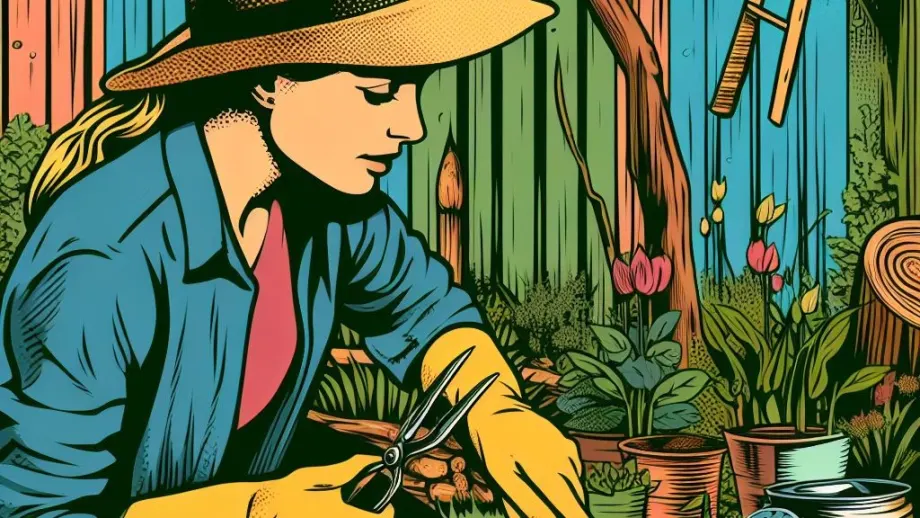50 Thrilling Microadventures for Your Next Weekend
- Last Updated:
Are you itching to shake off the cobwebs of your routine and dive into something exhilarating this weekend, but not sure where to start? Look no further! Whether you’re crunched for time, on a tight budget, or simply looking for something a little closer to home, microadventures are your ticket to fun, relaxation, and discovery. These mini outings are designed to be simple, inexpensive, and local, but packed with the spirit of adventure.
We’ve gathered 50 fantastic ideas for microadventures that you can embark on right in your backyard or just a short trip away. From star gazing and urban foraging to crafting your own nature journal, there’s something here for everyone. So grab your comfy shoes, call up a friend, and prepare to inject some adventure into your weekend without breaking the bank or traveling far. Let’s rediscover the joy of exploring and make every weekend memorable!
The Inspiration
We were given 50 Date Adventures from some friends and it’s been a lot of fun. Not only did it get us thinking out of the box for date night, it got us thinking of mini adventures we could do as a family. Of course after checking Amazon we found what we were looking for, but the creative juices were already flowing. So instead of wasting that inspiration we wanted to share our ideas with you here.

50 Date Adventures | Date Night Ideas Our date night ideas are an excellent way to take a step towards more exciting romantic experiences.

The Adventure Challenge Family Edition 50 Scratch-Off Adventures and Family Games for Kids and Adults
50 Microadventure Ideas

Dawn Chorus Walk: Rise early and set out on a tranquil walk to listen to the dawn chorus at a nearby park or forest. This is the time when birds are most vocal, and the symphony they create is not only beautiful to hear but also soothing for the mind. It’s a perfect way to start the day with peace and a bit of nature’s magic.
Local Nature Reserves: Spend a day at a nature reserve close to home. These areas are protected for wildlife and offer a chance to see ecosystems relatively undisturbed by human activity. You might spot some wildlife, and you’ll definitely learn more about local plants and animals.
Urban Exploration: Put on your walking shoes and explore the lesser-known streets and alleys of your city. Urban areas often hide fascinating historical sites, unique art installations, and quirky local businesses that you might normally overlook during the hustle and bustle of daily life.
Forest Bathing: Venture into a nearby forest and try forest bathing, a practice from Japan known as Shinrin-yoku. This involves taking in the forest atmosphere through all your senses, which has been shown to reduce stress, improve mood, and boost the immune system.
River or Canal Walk: Follow the path of a river or canal and let it guide you through different landscapes. These walks can be surprisingly serene and offer a mix of natural sights and human history, as many rivers and canals have been important for local trade and industry.
Picnic in the Park: Pack a simple picnic with some favorite snacks and head to a local park. This is a great way to enjoy good food in the great outdoors, and it provides a wonderful opportunity for relaxing, people watching, or playing frisbee or catch.
Geocaching: Try geocaching, the global treasure hunt game where participants use GPS to hide and seek containers, called geocaches, at specific locations marked by coordinates all over the world. It’s a fun way to explore new areas and add an element of adventure to an ordinary walk.
Hilltop Sunset or Sunrise: Find a local hill or elevated area where you can clearly see the horizon and plan a visit during sunrise or sunset. These moments offer stunning views and are perfect for photography, quiet reflection, or just enjoying the changing colors in the sky.
Photography Challenge: Choose a theme such as doors, street art, or urban wildlife, and spend a day taking photos that reflect this theme. This encourages you to look at your surroundings in new ways and can lead to surprising discoveries even in familiar places.
Bird Watching: Bird watching is a calming hobby that can be done almost anywhere. All you need is a pair of binoculars and a guide to local bird species. It’s a great way to connect with nature and learn about the biodiversity in your area.
Historic Town Tour: Visit a nearby town known for its history. Many towns have walking tour brochures or apps that guide you through significant historical sites and tell their stories, offering a glimpse into the past and how it has shaped the present.
Volunteer for a Conservation Project: Look for opportunities to volunteer with local conservation projects. This could involve planting trees, cleaning up natural areas, or helping at an animal sanctuary. It’s a great way to give back to the community and the environment.
Beach Combing: Walk along your nearest beach and search for interesting items washed ashore such as shells, sea glass, or driftwood. Beach combing can be like treasure hunting, you never know what you’ll find, and it’s a great way to learn about the marine environment.
Sketching Outdoors: Take a sketchbook to a scenic spot and spend some time drawing what you see. This can enhance your observation skills and offers a relaxing way to creatively engage with your surroundings.
Visit a Public Garden: Public gardens are wonderful places to explore, especially during the blooming season. They often feature a variety of plants and flowers, landscaped paths, and sometimes ponds or sculptures, making them ideal for a leisurely walk or a peaceful sit.
Mudlarking along a Riverbank: Search along riverbanks for historical artifacts that have washed up. This activity takes you back in time and connects you with the history of the area, and you might find something truly unique or significant.
Foraging for Wild Food: Learn about which plants in your area are edible and how to safely gather them. Foraging not only connects you with the natural world in a very direct way but also adds an element of sustainability to your cooking.
Outdoor Yoga: Find a quiet spot in nature, perhaps in a park or by a water body, and practice yoga. This combines physical activity with the calming effects of being outdoors, enhancing both your mental and physical health.
Star Gazing: Head to a dark spot away from city lights and spend the evening watching the stars and constellations. This can be a magical experience, especially during meteor showers or when the Milky Way is visible. Bring a blanket, some hot drinks, and maybe a guidebook or an app to help identify celestial objects.
Build a Bug Hotel: Use natural materials like straw, sticks, and pine cones to build a sanctuary for insects in your garden. This activity not only benefits the local ecosystem but can also be a fun and educational project for families. Place your bug hotel near plants, and watch as beneficial insects come to stay.
Explore a New Neighborhood: Walk or cycle around a neighborhood you’ve never visited before to see what you discover. Look for unique architecture, hidden gardens, and local cafes. This is a great way to exercise and learn more about the diverse communities within your city.
Camping in Your Backyard: Set up a tent in your backyard and enjoy a night camping at home. This is perfect for those who want a taste of camping without venturing too far from home. It’s also a great trial run for testing new camping gear.
Heritage Trail: Explore local heritage trails to learn about the historical significance of places around your area. Many communities have marked paths or guided tours that can enrich your understanding of the local history. It’s a great way to combine outdoor activity with a cultural education.
Rockhounding: Look for geologically interesting stones or fossils in areas known for their natural history. This adventure can be particularly exciting for those who enjoy geology or paleontology. Remember to respect local regulations regarding fossil and rock collection.
Nature Craft Day: Collect natural materials during a walk and use them to create art or crafts. This can include making collages, framing dried leaves, or even building small sculptures. It’s a creative way to engage with nature and make something beautiful from your findings.

Paddleboarding on a Local Lake: If you have access to paddleboards, spend a day on a nearby lake. It’s a peaceful way to explore waterways and get a full-body workout. Beginners might want to start with a lesson to get comfortable with the basics.
Nighttime Nature Walks: Explore local trails after dark to experience the nightlife of nocturnal animals. Bring a flashlight and move quietly; you may encounter animals that are seldom seen during the day. This adventure requires caution and respect for wildlife.
Cycle Touring: Plan a route and spend the day touring your area by bicycle. This is not only great exercise but also allows you to cover more ground than walking. Pack snacks and water, and perhaps plan a scenic spot for a lunch break.
Visit a Farm: Many farms offer free or inexpensive tours where you can learn about farming and animal husbandry. This could also include opportunities to feed animals, learn about crop rotation, and the importance of sustainable practices.
Attend a Local Outdoor Festival: Check for free or low-cost festivals in your area that celebrate local culture, music, or food. These events are often family-friendly and offer a variety of activities and performances.
Create a Nature Journal: Document your local flora and fauna in a dedicated journal. This can be a relaxing way to connect with nature and improve your observational skills. Sketch, take notes, or even press leaves and flowers to create a personal nature guide.
Public Art Tour: Many cities have public art installations scattered around; make a day of visiting these sites. This can include sculptures, murals, and installations that often reflect the culture and history of the area.
Do a Local Bioblitz: Organize a day to find and identify as many species as possible in your area. This can be done solo or as part of a group, and it’s a great way to learn about biodiversity and the importance of local habitats.
Fly a Kite: Find an open area and enjoy the simple pleasure of kite flying. This can be a soothing activity, especially on a breezy day. It’s also a chance to experiment with different types and sizes of kites.
Visit a Vineyard or Brewery: Some vineyards and breweries offer free tours and tastings. This is a great way to learn about the production processes and the nuances of tasting. It’s important to have a designated driver if you plan to indulge.
Practice Outdoor Survival Skills: Spend a day practicing skills like fire-starting or shelter-building in a safe environment. These skills can be invaluable and provide a sense of confidence in your ability to handle outdoor situations.
Attend a Free Workshop or Lecture: Look for free events in your community that could be interesting and educational. These can range from DIY projects to lectures on local history or environmental conservation.
Start a Fitness Challenge at a Park: Use park equipment or trails to begin a fitness challenge with friends. This can be a fun way to stay motivated and active. Choose different stations for various exercises like pull-ups, sprints, or yoga to keep things interesting and full-body focused.
Library Book Hunt: Many libraries have books about local history or nature. Check one out and explore the topics it covers. This can be a great way to prepare for other microadventures, giving you insights into what you might see or find in your area, from historical sites to native bird species.
Participate in a Community Clean-Up: Help clean a local park or beach and enjoy the outdoors while contributing to your community. It’s a rewarding way to make a tangible difference in your environment and connect with like-minded locals.
Try Orienteering: Many clubs offer free or low-cost orienteering events which are a fun way to test your map reading and navigation skills. Orienteering involves finding your way between checkpoints in unfamiliar terrain using a map and compass. It’s both challenging and educational.
Stream Cleanup Day: Organize or join a stream cleanup day to help maintain the cleanliness and health of waterways in your area. This is crucial for preserving local wildlife and water quality, and it’s a hands-on way to contribute to environmental conservation.
Play Disc Golf: Find a local park with a disc golf course and learn the basics of the game. Disc golf is played much like traditional golf, but with a flying disc or Frisbee®. It’s a low-cost sport that provides both fun and exercise.
Outdoor Meditation Session: Choose a quiet spot in nature for a meditation session. The natural setting can enhance the experience, helping you feel more connected to your surroundings and yourself. This practice can be particularly rejuvenating.
Backyard BioBlitz: Conduct a biological survey in your own backyard to see how many different species of plants, insects, and animals you can identify. This can be a great educational activity for kids and adults alike, fostering a deeper appreciation for local biodiversity.
Plant a Garden: Start a garden with native plants that benefit local wildlife such as pollinators. Gardening can be a therapeutic hobby that also helps to beautify your living space and provide habitat for wildlife.
Outdoor Cooking Challenge: Organize an outdoor cooking challenge with friends or family. Use a portable stove or open fire (where allowed) to cook a meal. This adds an element of adventure to cooking and can be a delicious way to enjoy the outdoors.
Hike a New Trail: Research and hike a trail you’ve never visited before. Look for trails with different difficulty levels or scenic views. Hiking is not only good exercise but also gives you a chance to explore diverse landscapes.
Urban Foraging: Learn about urban edible plants and go foraging in your city. Always make sure to forage responsibly and ethically, and avoid areas that might be contaminated by traffic or pesticides.
Create a Walking Tour: Design a walking tour of your city based on a theme, such as historical landmarks, art installations, or famous movie scenes. Invite friends to join you on this personalized tour, which can be a unique way to see familiar places through a new lens.

Wrapping It Up
And there you have it—50 creative and accessible microadventure ideas that promise big fun without the big expense or travel hassle. Whether you’ve decided to gaze at the stars, explore a new neighborhood, or try your hand at geocaching, each adventure is a step towards more exciting and enriching weekends. Remember, adventure doesn’t require distant travels; it’s about the spirit you bring to every day.
If You Found This Helpful, Please Share:
By Summer and Bill

Summer and Bill are the dynamic duo behind Adventureite.com, a blog dedicated to inspiring others to explore the great outdoors. With a combined lifetime of experience traveling and adventuring across America, they have a wealth of knowledge to share. From hiking to camping, kayaking to travel, Summer and Bill are passionate about helping others discover the beauty of the natural world.
 Adventureite
Adventureite